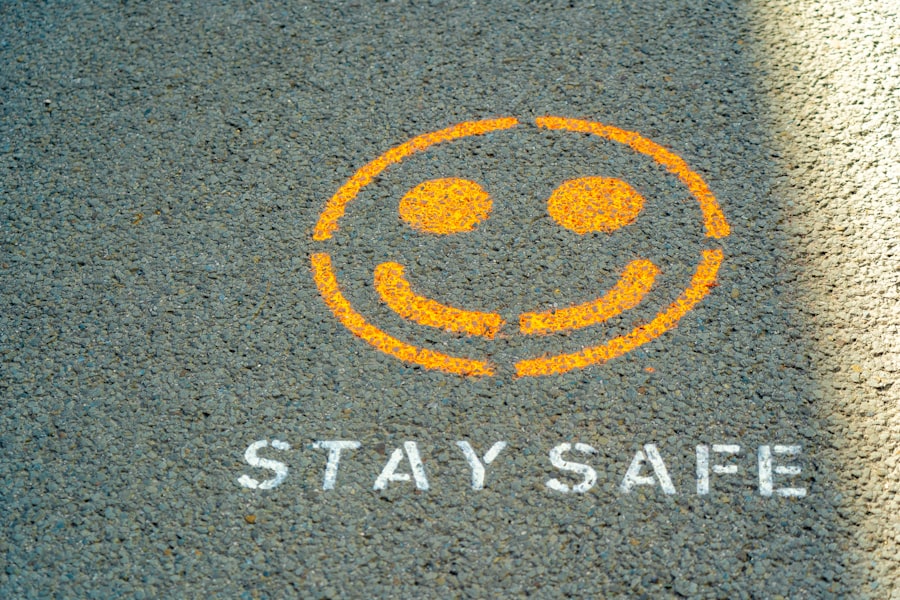In today’s fast-paced world, the convenience of drugstores cannot be overstated. They serve as essential hubs for obtaining medications, health products, and personal care items. However, with this convenience comes the responsibility of ensuring your safety while navigating these establishments.
Understanding drugstore safety is crucial for anyone who relies on these services for their health and well-being. You must be aware of the potential risks associated with purchasing medications and health products, as well as the best practices to mitigate these risks. Drugstore safety encompasses a range of considerations, from choosing a reputable establishment to understanding how to properly store and dispose of medications.
It also involves being vigilant about the products you purchase and how they may affect your health. By educating yourself on these aspects, you can make informed decisions that protect not only your health but also your financial investment in these products. This article will guide you through the essential elements of drugstore safety, ensuring that you can confidently navigate your local pharmacy.
Key Takeaways
- Choose a reputable drugstore to ensure the safety and quality of medications
- Always check for expiration dates on medications to avoid using expired products
- Read labels and instructions carefully to understand proper usage and potential side effects
- Avoid counterfeit products by purchasing medications from trusted sources
- Properly store medications in a cool, dry place and dispose of unused medications safely
Choosing a Reputable Drugstore
When it comes to selecting a drugstore, the first step is to ensure that you are choosing a reputable establishment. Not all drugstores are created equal, and some may not adhere to the same standards of quality and safety as others. You should look for pharmacies that are licensed and accredited by relevant health authorities.
This information is often displayed prominently in the store or on their website. A reputable drugstore will prioritize customer safety and satisfaction, providing you with peace of mind when making your purchases. Additionally, consider seeking recommendations from friends, family, or healthcare professionals.
Personal experiences can provide valuable insights into the reliability and service quality of a particular drugstore. Online reviews and ratings can also be helpful in gauging the reputation of a pharmacy. By taking the time to research and choose a trustworthy drugstore, you can significantly reduce the risk of encountering counterfeit products or receiving inadequate customer service.
Checking for Expiration Dates

One of the most critical aspects of drugstore safety is checking expiration dates on medications and health products. Expired items can lose their effectiveness or even become harmful over time. When you pick up a product, make it a habit to glance at the expiration date before making your purchase.
This simple step can save you from potential health risks associated with using outdated medications. Moreover, it’s essential to understand that some products may have different expiration dates based on storage conditions. For instance, certain medications may require refrigeration or protection from light to maintain their efficacy.
Familiarizing yourself with these requirements can further enhance your safety when purchasing and using medications. Always prioritize fresh products to ensure that you are receiving the best possible care for your health.
Reading Labels and Instructions
| Participant | Accuracy | Time Spent |
|---|---|---|
| Participant 1 | 90% | 15 minutes |
| Participant 2 | 85% | 20 minutes |
| Participant 3 | 95% | 12 minutes |
Reading labels and instructions is another vital component of drugstore safety that you should never overlook. The information provided on product labels is designed to guide you in using medications safely and effectively. This includes dosage recommendations, potential side effects, and specific instructions for use.
By taking the time to read this information carefully, you can avoid common mistakes that could jeopardize your health. In addition to dosage instructions, pay attention to warnings about potential interactions with other medications or substances. If you are taking multiple prescriptions or over-the-counter products, understanding how they may interact is crucial for your safety.
If anything is unclear or if you have questions about a product’s label, don’t hesitate to ask a pharmacist for clarification. They are trained professionals who can provide valuable insights and help ensure that you use medications safely.
Avoiding Counterfeit Products
The prevalence of counterfeit products in the market poses a significant risk to consumers, particularly in the realm of pharmaceuticals. Counterfeit medications can be ineffective or even dangerous, leading to serious health complications. To protect yourself from these risks, it’s essential to be vigilant when purchasing medications from any drugstore.
Always opt for well-known brands and avoid purchasing products from unfamiliar sources or online marketplaces that lack proper regulation. You should also familiarize yourself with the appearance of legitimate packaging for the medications you use regularly. Counterfeit products often have subtle differences in labeling, color, or packaging quality that may not be immediately obvious.
If something seems off about a product, trust your instincts and refrain from purchasing it. By being proactive in identifying counterfeit products, you can safeguard your health and ensure that you are receiving genuine medications.
Properly Storing Medications

Once you’ve purchased your medications, proper storage is essential for maintaining their effectiveness and safety. Medications should be stored in a cool, dry place away from direct sunlight and moisture. Bathrooms are often not ideal storage locations due to humidity levels; instead, consider keeping them in a designated area such as a bedroom or kitchen cabinet.
It’s also important to keep medications out of reach of children and pets. Childproof containers are helpful, but it’s best to store all medications in a secure location where unauthorized individuals cannot access them. Regularly check your medication supply for any expired items or those that are no longer needed, as this will help keep your storage area organized and safe.
Understanding Drug Interactions
Understanding drug interactions is crucial for anyone taking multiple medications or supplements. Certain combinations can lead to adverse effects or diminish the effectiveness of one or more drugs involved. Before starting any new medication, whether prescription or over-the-counter, take the time to consult with your healthcare provider or pharmacist about potential interactions with your current regimen.
You should also be proactive in keeping an updated list of all medications you are taking, including dosages and frequency. This list can be invaluable during medical appointments or emergencies when healthcare providers need to know what you’re currently using. By being informed about drug interactions, you can take steps to avoid complications and ensure that your treatment plan remains effective.
Reporting Adverse Reactions
If you experience any adverse reactions after taking a medication, it is vital to report these incidents promptly. Adverse reactions can range from mild side effects to severe complications that require immediate medical attention. By reporting these reactions to your healthcare provider or pharmacist, you contribute valuable information that can help improve medication safety for everyone.
In addition to informing your healthcare team, consider reporting adverse reactions to regulatory agencies such as the Food and Drug Administration (FDA) in the United States. These organizations rely on consumer reports to monitor medication safety and identify potential issues with specific products. Your input can play a crucial role in enhancing drug safety standards and protecting others from similar experiences.
Safely Disposing of Unused Medications
Proper disposal of unused or expired medications is an often-overlooked aspect of drugstore safety but is essential for preventing accidental ingestion or environmental contamination. Many communities offer medication take-back programs where you can safely dispose of unwanted drugs at designated locations. These programs ensure that medications are disposed of in an environmentally friendly manner while reducing the risk of misuse.
If a take-back program is not available in your area, follow guidelines for disposing of medications at home. This typically involves mixing the medication with an undesirable substance like dirt or cat litter and placing it in a sealed container before throwing it away in the trash. Always remove personal information from prescription bottles before disposal to protect your privacy.
Protecting Personal Information
In an age where personal information is increasingly vulnerable to theft and misuse, protecting your data while shopping at drugstores is paramount. When filling prescriptions or making purchases, be cautious about sharing sensitive information such as your Social Security number or financial details unless absolutely necessary. You should also be aware of how your personal information is stored by the pharmacy.
Reputable drugstores have measures in place to protect customer data; however, it’s wise to inquire about their privacy policies if you’re concerned about how your information is handled. By being proactive about protecting your personal information, you can enjoy peace of mind while shopping for your health needs.
Seeking Professional Advice
Finally, never hesitate to seek professional advice when it comes to your health and medication needs. Pharmacists are highly trained professionals who can provide valuable insights into medication management, potential side effects, and interactions with other drugs or supplements you may be taking. If you’re unsure about a product or have questions regarding its use, don’t hesitate to ask for assistance.
Additionally, if you’re considering starting a new medication or treatment plan, consulting with your healthcare provider is essential for ensuring that it aligns with your overall health goals.
By seeking professional advice, you empower yourself to make informed decisions that prioritize your well-being.
In conclusion, navigating drugstore safety requires vigilance and awareness at every step of the process—from choosing a reputable establishment to properly storing and disposing of medications. By following these guidelines and prioritizing safety measures, you can confidently manage your health needs while minimizing risks associated with medication use. Remember that knowledge is power; by educating yourself on these topics, you take an active role in safeguarding your health and well-being.
When it comes to ensuring your safety while shopping at drugstores, it’s essential to stay informed about the products you purchase. For more insights on consumer safety tips, you can check out this informative article on Hey Did You Know This. It provides valuable information that can help you make safer choices and avoid potential hazards in everyday products.
WATCH THIS! The $14 Billion Lie Hiding in America’s Drugstore
FAQs
What are some general consumer safety tips for drugstore shopping?
– Always read and follow the instructions on medication labels.
– Check for any signs of tampering or damage to the packaging before purchasing.
– Be cautious of expired products and always check the expiration date before buying.
– Consult with a pharmacist or healthcare professional if you have any questions or concerns about a product.
How can consumers ensure the safety of over-the-counter medications at the drugstore?
– Look for products that have been approved by reputable regulatory agencies, such as the FDA.
– Check for any warnings or precautions on the medication packaging.
– Be aware of potential interactions with other medications or medical conditions, and consult with a pharmacist if needed.
What should consumers be aware of when purchasing dietary supplements at the drugstore?
– Be cautious of exaggerated claims or promises on supplement packaging.
– Look for supplements that have been tested and certified by third-party organizations, such as NSF or USP.
– Consult with a healthcare professional before starting any new dietary supplement regimen.
How can consumers ensure the safety of personal care products at the drugstore?
– Check for any potential allergens or irritants in the ingredients list.
– Be mindful of any product recalls or safety alerts related to personal care items.
– Perform a patch test before using a new personal care product, especially if you have sensitive skin.
